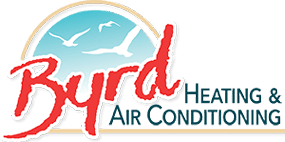Maintaining good indoor air quality in your Eden, Georgia, home is essential for staying comfortable, minimizing your allergy symptoms, and keeping you and your family healthy. The bad news is that there are a number of biological pollutants that could be lurking in your home and wreaking havoc on your indoor air quality.
Common Biological Pollutants
A biological pollutant is a harmful living thing that comes into contact with your air or water supply. There are many common biological pollutants that may be present in your home and worsening your indoor air quality. Some of the most common pollutants that you might encounter in your home include:
Pollen
Pollen is a common allergy trigger that can lead to watery eyes, sneezing fits, and itchiness. The pollen comes from trees, flowers, and shrubs, and their levels are at their highest during the fall and spring. Pollen can enter your home in a number of ways. It can come in through open windows; cracks or holes in the siding, windows and doors, and even on your shoes and clothing. Once in your home, the pollen can circulate into your HVAC system and worsen the indoor air quality, especially for those who suffer from allergies.
Pet Dander
While you probably love and adore your pets, you probably don’t love and adore the hair and pet dander that they leave behind. Even if your pets are not heavy shedders, they’ll still leave dander around the areas that they frequent, especially where they sleep. Pet dander is composed of dead skin cells and is relatively harmless. However, it can be problematic for your indoor air quality, especially for family members with allergies.
Dust Mites
Dust mites are one of the most common and powerful biological contaminants in homes, especially relative to their size. These pests are so small that you can’t see them without looking through a microscope. These small, white bugs love warm and humid homes, and they can get into almost any part of your house. When their numbers are high, they can worsen your indoor air quality and trigger allergy symptoms.
Bacteria
Bacteria come in many forms. Some are good bacteria and can improve your health; others are bad and can cause you to experience a wide range of symptoms. While there are bacteria everywhere, certain kinds of bacteria, such as those found in animal droppings, can pose problems for your indoor air quality. These kinds of bad bacteria can get into your home by attaching to people or animals and can even be present in the soil of household plants. Harmful bacteria can also grow wherever there are wet surfaces, water-damaged materials, or standing water.
Cockroaches and Other Pests
Not only can cockroaches, insects, and other pests damage your home, they can also destroy your indoor air quality. These pests leave behind urine and fecal matter that, when dry, becomes airborne and spreads bacteria and infectious diseases. Cockroaches are especially hard to get rid of. They feed on the feces and debris of other pests and then transmit bacteria throughout your home.
Biological Growth
Biological growth can form due to poor air handling systems or water damage. These biological substances produce spores that can circulate throughout your home, often by traveling through the air in your HVAC system. When ingested, they can trigger allergies and asthma and lead to respiratory complications.
Health Effects That Can Occur From Common Biological Contaminants
There are numerous health complications that you might experience after coming into contact with these biological contaminants. The type and severity of these symptoms will depend on the strength of your immune system, the type of pollutant, and the concentration of the pollutant in the air.
One of the most common effects of biological pollutants is the triggering of allergies. When people with allergies come into contact with high levels of biological contaminants, they may experience a range of symptoms, including:
- Hypersensitivity pneumonitis.
- Allergic rhinitis.
- Certain forms of asthma.
Even if you don’t have allergies, you can suffer from allergy-like symptoms and other common discomforts, including:
- Sneezing.
- Itchy or watery eyes.
- Coughing or respiratory trouble.
- Difficulty breathing or shortness of breath.
- Headaches and dizziness.
- Lethargy or weakness.
- Digestive complications.
- Fever or infectious diseases, such as influenza.
You can even develop allergies if you are exposed to biological pollutants over a period of time. These reactions can range from isolated occurrences or develop into long-term, chronic symptoms when you are repeatedly exposed to pollutants.
Those with weaker immune systems, asthma, severe allergies, or breathing difficulties can be much more susceptible to diseases caused by biological pollutants. In particular, older adults, small children, and those with compromised immune systems should be closely monitored because minor reactions can become significantly worse within a short period of time.
Ways to Reduce Biological Contaminants in Your Home
The best way to protect your family from biological pollutants is by taking measures to minimize the number of contaminants that are present in your home and being circulated into your air supply. Some ways to reduce the number of contaminants in your home include:
Maintain a Regular Cleaning Schedule
One of the easiest ways to control pollutants is by cleaning your home on a regular basis. Cleaning reduces your risk of exposure to pests and insects, removes bacteria from household surfaces, and reduces the amount of pet dander, hair, and dust in your home. While regular vacuuming is one of the quickest ways to eliminate a number of allergens from your home, cleaning your bedding, furniture, and linens is also vital.
Address and Clean Up Water Issues Immediately
Biological growth, bacteria, and certain pests thrive in moist environments. Leaks in the home and water-damaged surfaces make the perfect breeding grounds for these kinds of contaminants, which can get into your HVAC system and damage your indoor air quality. Fix any leaks and thoroughly dry water-damaged areas, especially carpets, which can hold water for a long time.
Keep Pest Problems Under Control
Pests can transmit bacteria and infectious diseases. If you suspect that you have a pest problem, be sure to contact a pest control specialist immediately. Even if you don’t have a pest problem, you should make sure to practice good pest control habits by, for example, cleaning up food, keeping garbage in the proper receptacles, and sealing up any cracks or holes where pests can get in.
Control the Moisture in Your Home With Humidifiers
The moisture level in your home can affect bacteria levels and biological growth and can create a hospitable environment for pests and other unwanted guests. By keeping the humidity in your home around 50 percent, you can improve your indoor air quality and prevent the formation of many biological pollutants.
Ensure That Your Home Is Properly Ventilated
Properly ventilating your home improves air circulation and prevents moisture buildup. Ventilation is especially important in rooms where moisture is more prevalent, such as laundry areas, kitchens, basements, and attics. You should always have exhaust or ventilation fans above the stove and coming out of the dryer to draw out possible pollutants from your home’s air supply.
Add an Air Cleaner or Filter to Your Home
If you have pets or suffer from asthma or allergies, it may be worth investing in a whole-home air cleaner or air filtration system to filter out possible contaminants or pollutants. You can purchase these systems as stand-alone units or as an add-on to your current HVAC system. These systems can filter the air for your entire house instead of only one room.
Consider an Ultraviolet Lamp
Ultraviolet lamps are designed to improve the indoor air quality of your home by killing bacteria and biological growth. When combined with proper cleaning and a well-maintained HVAC system, ultraviolet lamps can combat many of the biological pollutants that can worsen your home’s indoor air quality.
Take control of your home’s indoor air quality and reduce the number of biological pollutants in your home by contacting Byrd Heating and Air Conditioning at 912-373-8447. Our specialists can identify your indoor air quality needs and provide you with solutions that can make you and your family healthier.
Image provided by Shutterstock


